Here are the top ten books I read in 2022. I really enjoyed taking part in the #20BooksByAsianWomen and #20BooksByBlackWomen challenges on Instagram this year, which you will see reflected in my list. I hope you'll find something good to read.
Barbara Kingsolver - The Poisonwood Bible (1998)
This masterpiece of a novel recounts the experiences of a family who moves to the Congo as missionaries in 1959. The story is told from the perspective of the wife/mother and her four daughters, decentering the voice of the authoritarian husband/father whose presence dominates their family, and who zealously strives to convert and baptize Congolese people he refuses to understand.
Kingsolver's prose is masterful, at times beautifully poetic, and above all immersive. One of the novel's great strengths lies in the distinctiveness of each woman's voice (the narrator changes every chapter) and the different ways each of them responds to the challenges before them. It is fascinating to watch each woman's journey over the course of decades and to see how their viewpoints evolve and interact.
The Poisonwood Bible is a gripping story that thoughtfully engages a myriad of important topics, including cross-cultural missions, colonialism, patriarchy, racism, disability, and more. This rich 500+ page novel is one to settle into and savor slowly.
(Thanks to my wife Christie for recommending this book to me repeatedly until I finally read it, and to my friend Mark Cooprider for loaning me his well-loved teacher's copy so I could read it on real paper.)
This short collection of essays on vocation spoke to me at a deep level. Palmer's own vulnerability is what sticks with me the most. Throughout the book, he is disarmingly honest about his own vocational journey — his successes and failures, his noble motivations and his embarrassing ones. His example invited me into a similar posture of honesty and humility as I consider my own life and vocation.
Learning ourselves and finding our place in the world can be a messy process, full of fits and starts, missteps, and unexpected turns. Palmer's book embraces the messiness of the vocational journey, without judgment, and provides key insights for identifying our vocational sweet spots and living with the grain of who God has made us to be. Let Your Life Speak is a potentially life-changing book that I already look forward to reading again.
(Thanks to Tracey Gee for recommending this book to me!)
I love that this story is set in a world of Thai-inspired magical realism. It follows the journey of a prison-born boy named Pong who escapes and lives as a fugitive, pursued by the prison warden's daughter, Nok. Both characters go on a journey, literally and figuratively, culminating in events much bigger than themselves.
Soontornvat delivers resplendent visual imagery, characters with lots of personality, and page-turner pacing. This fast-paced Middle Grade novel touches on issues of privilege, poverty, incarceration, and activism.
I found out after I had read this story that it is a loose adaptation of Les Misérables, which adds another wonderful layer of enjoyment. But A Wish in the Dark shines on its own as an excellent and memorable Newberry Honor book that anyone can enjoy.
Dr. Lee provides a sweeping but accessible account of the 400+ year history of Asian Americans. As a Thai American, I appreciated learning more about the extremely diverse strands of Asian American history.
I also gained a deeper awareness of how American history has been continually marked by anti-Asian racism and, more than I realized, outright violence against Asian Americans. The historical resilience of Asian Americans is nothing short of incredible, and this book is a testament to that history.
(Thanks to Kristin Lee Huang for recommending this book to me after it caught my eye on her bookshelf, and for hosting the #20BooksByAsianWomen Instagram challenge which encompasses several of the books on my list this year.)
Part commentary on Esther, part reflections on the quest for racial justice, this book from veteran racial reconciliation expert Dr. Brenda Salter McNeil has marked me.
First, I will never read the book of Esther the same way after McNeil's insights—a reminder of how important it is to seek out women, especially women of color, as biblical teachers.
Second, I was grateful to learn from McNeil’s evolving approach to anti-racism work, informed by her decades of faithful “racial reconciliation” work in white American Christian spaces. McNeil tells it like it is, and it ain’t pretty, but she helps us know how to press forward in such a time as this.
Ralph Basui Watkins - Hip-Hop Redemption: Finding God in the Rhythm and the Rhyme (2011)
Many Christians are quick to write off Hip-Hop for its profanity, violence, and misogyny. In this book, Dr. Watkins helps us dive beneath the surface and learn to hear Hip-Hop as “the voice of a weeping prophet.”
There is far more theology going on within Hip-Hop culture (for those who have ears to hear) than many outsiders realize. Watkins argues that Christians need to hear what God is speaking to the institutional church through Hip-Hop culture—echoing the biblical prophets who also spoke to religious power from the margins (and were mostly ignored) in their day. This is a paradigm-shifting book that has forever changed how I listen to Hip-Hop.
(Many thanks to Professor Dwight Radcliff for assigning this book as a central text in my favorite course last year, “Theology and Hip Hop Culture” at Fuller Seminary.)
This was Martin Luther King Jr.'s final book before his assassination, showing the development of his thought and leadership as he looked beyond the gains of the Civil Rights Movement to broader goals of abolishing poverty altogether.
Returning to Dr. King's own writing—not quotes, not excerpts, not books that reference and build on his ideas, but King's own long-form arguments—felt like coming back to a light source after a long while of experiencing its dimmer reflections. Fifty-five years after King penned these words, his deep wisdom remains relevant, challenging, and necessary.
I look forward to reading much more of King's writing in my "Theology and Ethics of Martin Luther King Jr." course at Fuller Seminary this quarter.
We Are Not Free follows a group of second-generation Japanese American teenagers as their lives are shockingly upended by the United States' internment of Japanese Americans in the 1940s. It is a story of tragedy and gaman (perseverance) told through many different teenage voices.
This young adult historical fiction novel was a great complement to Erika Lee's The Making of Asian America. Whereas Lee's book gave a sweeping view of Asian American history, Chee's novel helped me to better feel one small piece of that history.
The scene that sticks with me the most is that of a teenager defiantly playing one last song on her piano as it sits on the curb in front of her apartment, sold and waiting to be hauled off as her family moves to an internment camp. It's nowhere close to worst tragedy in the book, but sometimes it's the smaller, unexpected moments that grab us and help us begin to feel the absurdity, the pain, and the gaman of others' experiences.
More than anything, this young adult fantasy novel is a fun adventure! An ordinary girl named Miuko finds herself pulled into a wild and urgent quest to save herself and the people of Awara, a fantastical world inhabited by all sorts of creatures and spirits inspired by Japanese folklore.
A Thousand Steps into Night feels like a Ghibli movie in the best way—vivid and wonderfully imaginative. Chee's fantastical characters, and a few jaw-dropping plot twists, make this story a delight to read.
Douglas Kaine McKelvey - Every Moment Holy, Volume 1 (2020)
The idea behind this book is that the Christian faith should speak into "every moment" of our lives. I appreciated McKelvey's thoughtful liturgies for everything from sports competitions to changing diapers.
Rabbit Room Press went above and beyond to produce a gorgeous book with original linocuts by Ned Bustard, a faux leather cover, a ribbon bookmark, and beautifully formatted text including red-letter accents.
For more recommendations, check out my previous Best Books lists: 2021, 2020, 2019, 2018, 2016-17, and 2015.
Also leave a comment and let me know what some of your favorite books from this past year were!
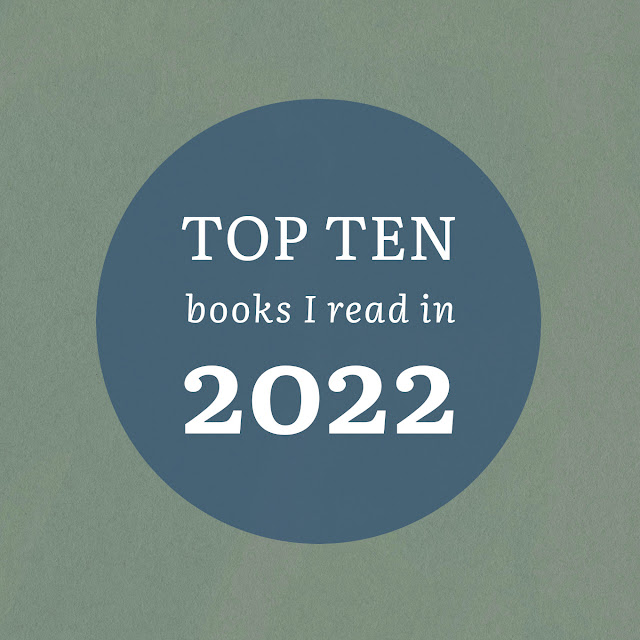
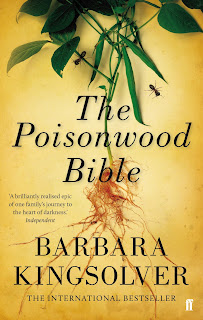




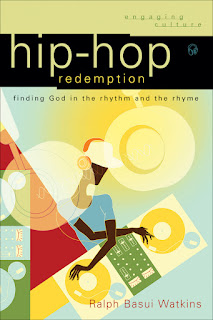
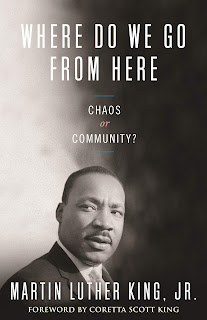


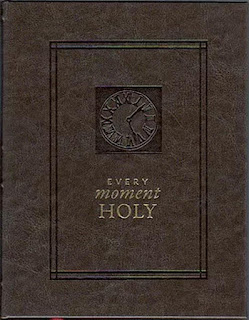






No comments:
Post a Comment